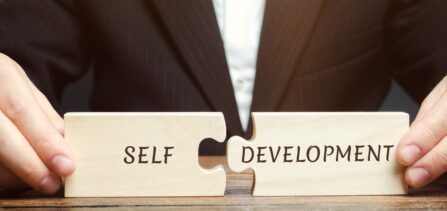
Making Personal Development Personal
Personal Development can sometimes seem like a pretty daunting ‘task’ rather than something to be desired or pursued.
Professional Personal Development and Personal Effectiveness
We’ve written before about Impact Factory’s brand of Professional Personal Development, but we’re just going to take a little sidestep here to talk about the broader issue of Personal Development.
This is because there’s an awful lot of talk about personal development and for some people, they’re not quite sure how it relates to them.
Often when we become adults, learn new skills, have a job, a relationship (or not), friends, or colleagues, we’re pretty much set in who we are, how we think and behave and what the nature of our emotional selves is.
Making Personal Development Personal
Personal Development can sometimes seem like a pretty daunting ‘task’ rather than something to be desired or pursued.
Do I have to change everything about myself?
Won’t it be painful and emotionally wrenching?
I’ll lose my friends if I change too much.
Common myths. And myths they are if you look at the gentler, more humane way to approach personal development.
It shouldn’t be wrenching; you don’t need to have an epiphany and change your ways forever; it should be a natural evolution of who you already are, not a tearing apart and putting back together again.
Although Impact Factory primarily works with people in the workplace, the issues surrounding personal growth are the same in any area of your life.
And here are a few reasons why:
Reverting to type and dealing with the feelings
What is very clear to anyone that works with people is that under pressure, people will ‘revert to type’. In normal circumstances, when there’s no pressure, everyone knows how they would like to deal with things differently.
However, when decisions need to be made quickly when things aren’t working as you would wish when others become more demanding, most people under stress will behave as they always have. They will not have the time, nor will they make the time to weigh and measure their options.
What they will do is react to the current situation and do what they’ve always done to get a speedy result. What they have always done may not – often is not – the most appropriate choice to make, but it seems to be the only one available to them at the time. It is in hindsight that other options become clear.
Listen to our Podcast on the
Neuroscience of Learning and Development
Reverting to Type
People cannot help reverting to type. It is how the species has survived: when a mastodon came into view, people didn’t take time to ponder their options; they acted immediately. That vital mechanism is within us all: under threat, we will react without conscious thought in order to survive.
However, without well-developed people skills, pressurised communication in all areas of our lives can look like bullying or blaming where it’s easier to accuse or order someone around rather than encourage.
It can mean that people will avoid conflict and back down from useful confrontations where differences could get resolved. People will make incorrect assumptions and then act on them. Reverting to type can also mean avoiding getting support from others because you feel you have to do everything yourself.
When people revert to type, they are usually driven by their feelings, and it will usually be feelings that get in the way of being able to change behaviour constructively. Most people know how they would like to behave, so teaching the ‘how to’ is not at issue here.
The Feelings Will Get in the Way
Feelings that can get in the way of personal effectiveness can be anything from nervousness about presenting, to fear of humiliation for saying something foolish, to being intimidated by a particular person who seems to wrong-foot you all the time. Feelings can make you shy away from handling tricky situations from saying no to Christmas dinner with the parents to asking for a raise or communicating more honestly with a colleague.
At Impact Factory we address the fact that at times (more often than not) uncomfortable feelings will make it difficult, if not impossible, to create the outcome you want. Otherwise, people are trying to cope with new information and new techniques without acknowledging that their emotions can, at times, stop them from making any change whatsoever.
That’s not personal development, and trying to learn new things without that essential acknowledgement usually means the learning won’t stick.
Changing Yourself to Change Others
We hear over and over again that people’s personal impact in their home and work lives would be much better if only someone else would change the way they do things. “If my sister wasn’t so stubborn, we’d have a much easier relationship.” “I’d get on much better if only my line manager would give me more time to get things done.” “My job would be easier if only my secretary were more efficient.” “My parents are so frustrating; if only they would start treating me like an adult.”
In these and many other examples, the solution seems to rest with someone else. Therefore, the responsibility for moving things forward rests with others as well. There will always be situations where life would be far better if someone else would just shape up and do things the way we think they ought to be done! However, that attitude puts all the power and influence into someone else’s hands and leaves us feeling impotent and often inadequate. You can have a good moan, but nothing changes.
Choose to Change
Changing what you do, changing the way you speak to others, changing your attitude towards recurring difficulties will change the normally predictable outcome.
When we talk about change, we are looking for simple changes; tweaks, adjustments, small alterations, rather than looking to change everything about a person. At Impact Factory we talk about the least amount of change for the greatest impact. Striving for small but effective changes rather than complete transformation.
That’s how true personal development needs to happen: not massive life-changing upheaval, but easily manageable, incremental changes that don’t require you to change everything about yourself (or expect everyone else to change as well).
When we work with people’s personal development, we make it easy, enjoyable and varied, whether the focus is a specific expertise such as leadership, or something more general such as interpersonal skills. What works for one person won’t necessarily work for others.
We believe that the way forward is to find a few things that you know you’ll be able to do, to have fun doing them and to experience enough small wins as you practise them. These are the things you’ll be able to remember in the heat of a difficult situation. You will revert to a new type that feels familiar because it’s developed from who you already are, not about becoming someone you’ll never be!
Real-life, Not Make-Believe
Here’s one way that we do that: we use real-life, everyday situations that people encounter on the job or in their personal lives, rather than giving people made-up, textbook scenarios they then have to ‘act out’. Working with real issues helps people recognise and understand their feelings rather than ignoring them or wishing they would go away.
We know that if you spend time learning and developing new skills on a course there needs to be a realistic bridge between the workshop room and real life.
We always ask people to bring in their own experiences – a challenging presenting situation, a recurring difficult person or problem, an upcoming meeting, etc. Within those real-life scenarios, we use some of the tools and techniques that the individual has practised during the training and has already found works for them.
By letting people work on their specific issues and then incorporating their favourite techniques into the re-enactments, they get to choose what they feel able to do, rather than the ones they ought to do.
And if we could sum up our entire philosophy in one word it would be?
CHOICE
When people feel they have a choice, they feel more confident and better able to deal with the ordinary and the extraordinary of work and personal life.
And that’s how we make professional development personal as well!
Personal Impact Training
Impact Factory runs
One and Two-Day Personal Impact Courses
Tailored Personal Impact Training
and personalised
One-to-One Personal Impact Skills Training
for anyone interested in
Personal Impact and Effectiveness





